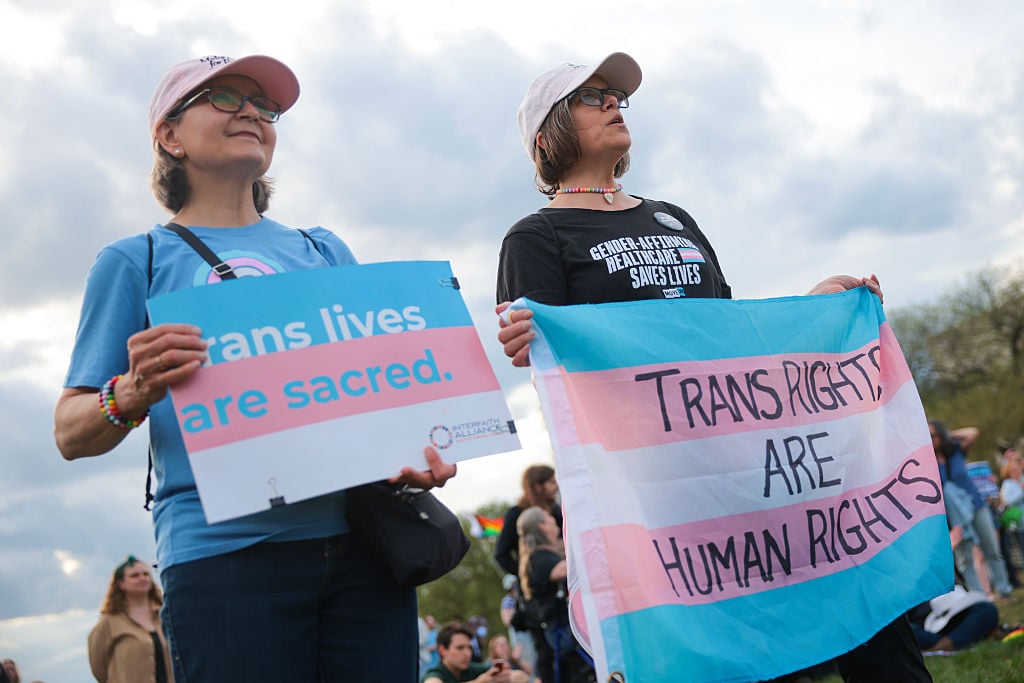U.S. Immigration and Customs Enforcement (ICE) has ceased to report the number of transgender individuals in its custody, a decision that advocates argue undermines efforts to secure the safety of queer people within the nation’s immigration detention system. This change, which began in February 2023, coincided with broader rollbacks in policy regarding transgender care and protections, raising significant concerns among human rights advocates.
The Vera Institute for Justice highlighted that ICE stopped including these statistics in its biweekly reports, which contradicts a 2021 mandate that requires the agency to disclose such figures. This lack of transparency comes as ICE has also removed a 2015 memorandum that outlined the treatment of transgender migrants, a document originally crafted by Thomas Homan, who currently serves as the border czar under the Trump administration. Additionally, an executive order from Trump mandates that individuals in federal facilities, including immigration detention centers, be classified according to their sex assigned at birth.
Experts like Noelle Smart, a principal research associate at the Vera Institute, emphasize that the absence of this data mirrors a troubling trend in which ICE has effectively erased the existence of vulnerable individuals, regardless of their legal status in the U.S. Smart remarked, “The harms of anti-immigrant and anti-trans policies are compounding, and at a time where we have even less access to just the most basic statistics.”
The Department of Homeland Security and ICE have not responded to requests for comment regarding the matter. Advocacy groups suggest that the decision to withhold these statistics is part of a broader strategy by the Trump administration to evade accountability as immigration detention expands, bolstered by increased funding and partnerships with private prison companies.
In a report released last year, Immigration Equality, a nonprofit organization that supports LGBTQIA+ and HIV-positive migrants, detailed the abuse faced by queer individuals in federal immigration detention. The report found that these individuals frequently endure sexual and physical violence due to their identities, in addition to inadequate medical care and solitary confinement. Bridget Crawford, director of law and policy at Immigration Equality, stated, “The vast majority of our cases are for LGBTQ+ or HIV-positive people… the types that you just see across the board are incredibly high levels of torture and sexual violence.”
The implications of the Trump administration’s policies extend beyond U.S. borders. A recent executive order halting refugee resettlement has left many at-risk queer individuals worldwide in precarious situations, as highlighted in Immigration Equality’s report. The experiences of a lesbian couple fleeing the Taliban in Afghanistan and a gay Ugandan man stranded in Kenya illustrate the life-threatening circumstances faced by those escaping persecution. Notably, a Somali trans woman named Camilla, who had endured years of violence in a conversion camp, was murdered shortly after her resettlement was paused in January 2023.
As the U.S. grapples with its changing role in providing refuge, many queer migrants express hesitance about resettling in the country due to escalating discrimination. Senna Seniuk of Rainbow Railroad remarked, “For folks who have some level of choice about where they may be able to safely get to, I would say that the U.S. is a lower priority.” Yet, despite the declining perception of the U.S. as a safe haven, some individuals continue to arrive, often in desperate situations.
Media attention on the challenges faced by LGBTQIA+ migrants began to intensify in 2018 following the death of Roxana Hernández, a transgender woman who died in ICE custody due to inadequate medical treatment. Hernández’s passing underscored the systemic failures within the immigration detention system, with advocates asserting that her death signifies a disregard for the dignity and rights of transgender individuals.
Reports of mistreatment in detention continue to emerge. Earlier this year, a trans woman held at Guantánamo Bay reported being forced to shower in front of male guards and was denied contact with family or legal representation. In another notable case, a trans woman filed a federal lawsuit against immigration officials in New York, alleging mistreatment and denial of medical care while in custody.
The situation of Andry Hernández, a gay Venezuelan asylum seeker, further illustrates the dangers faced by LGBTQIA+ individuals. After being wrongfully labeled as a gang member, he spent months in a notorious prison in El Salvador before being released in July 2023. Unfortunately, he has since returned to Venezuela, where he initially fled to escape homophobic violence.
As the landscape of immigration policy continues to evolve under the Trump administration, the impacts on marginalized groups, particularly LGBTQIA+ individuals, remain profound. The ongoing struggle for visibility, safety, and justice within the immigration detention system underscores the urgent need for transparency and reform in how the U.S. treats its most vulnerable populations.
